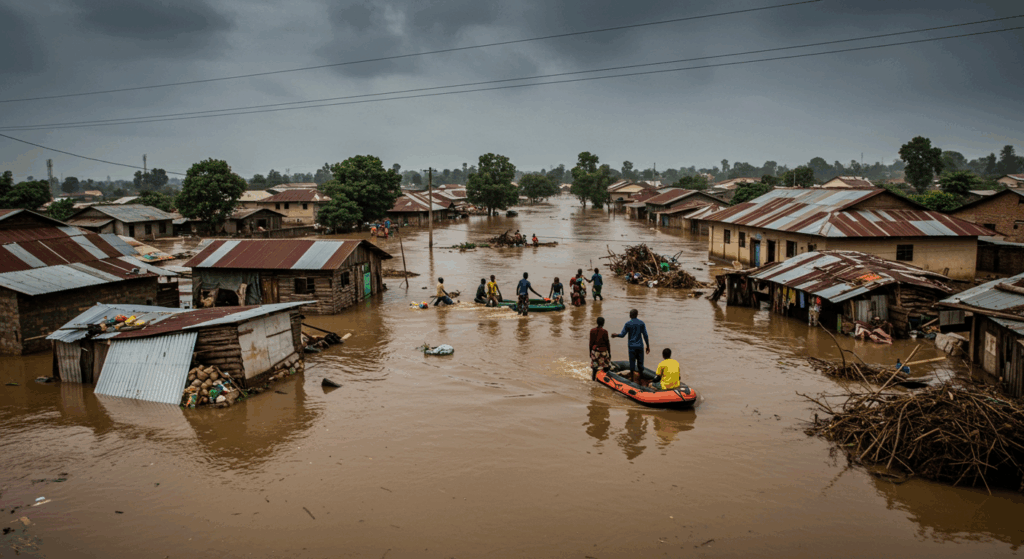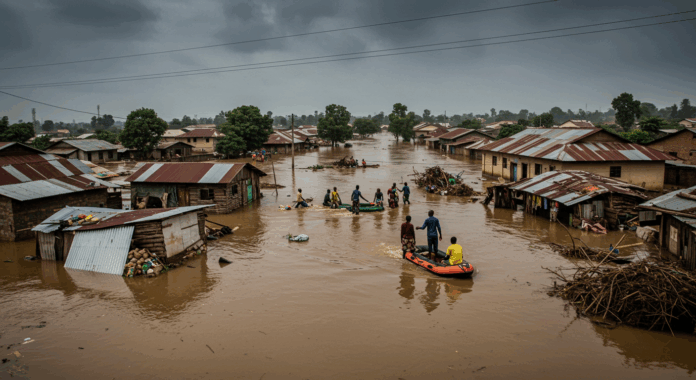
Imagine waking up to the sound of torrential rain, only to find your home submerged and your loved ones missing. This was the grim reality for residents of Mokwa, Niger State, in late May 2025. The floods not only took lives but also exposed the fragility of Nigeria’s infrastructure and the pressing challenges posed by climate change.
- The Deluge Unfolds
In the early hours of May 29, 2025, Mokwa experienced unprecedented rainfall, leading to flash floods that devastated the town. Over 150 people lost their lives, with many more missing and presumed dead. Entire neighborhoods were submerged, and the local economy came to a standstill.
- Personal Stories Amidst the Tragedy
Mallam Hassan Umar, a local Islamic teacher, lost numerous pupils and relatives as his home-school was swept away. Haruna Yusuf lost 14 relatives and several Almajiri students, including his brother who perished trying to save others.
- Infrastructure and Emergency Response
The floods destroyed critical infrastructure, including roads and bridges, hampering rescue efforts. Emergency services, including the National Emergency Management Agency (NEMA) and the Red Cross, were deployed to provide relief and search for survivors.
- Climate Change and Urban Planning
Experts attribute the severity of the floods to a combination of climate change-induced extreme weather events and inadequate urban planning. The lack of proper drainage systems and uncontrolled urban expansion have made cities like Mokwa more susceptible to such disasters.
- Government and Community Response
President Bola Tinubu extended condolences and pledged immediate aid, including relief materials and temporary shelters. Local communities rallied together, offering support to those affected and initiating cleanup and rebuilding efforts.
- The Path Forward
This tragedy underscores the urgent need for Nigeria to invest in climate-resilient infrastructure, enforce urban planning regulations, and develop comprehensive disaster response strategies. Community education and involvement are also crucial in building resilience against future disasters.
Conclusion:
The Mokwa floods serve as a stark reminder of the devastating impacts of climate change and the importance of preparedness. As Nigeria mourns the lives lost, there’s an imperative to take decisive action to prevent such tragedies in the future.


